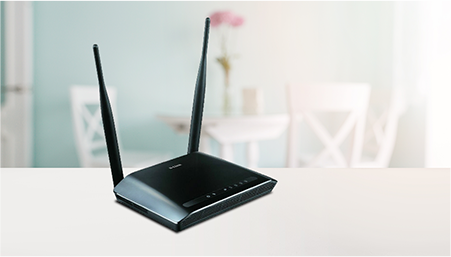Which is better, a Wi-Fi connection or a broadband?

In this day and age when you feel the need to stay connected to the internet at all times, one question keeps coming to mind: what’s the best way to do it? A wifi-connection or a broadband?
We assume you have already asked this question to yourself so many times before. Probably, every time when you needed a new broadband connection or felt the need to upgrade the existing one. And it’s clear that you haven’t figured it out yet. Isn’t it why you are here in the first place?
So, without ado, let’s address the elephant in the room and get a definite answer. For this, you need to know what the difference between the two is. Is it just in the way you connect through a wire or without it, or is there more to it? Is it the technology? The equipment? The medium? Or is there more?
But first, what’s a Wi-Fi?
Going by the books, internet wifi technology uses radio signals and frequencies to transfer data and hence, doesn’t require wires. It typically makes use of cellular radio frequencies or 802.11 Wireless Ethernet technologies. Do you still confuse a Wi-Fi connection with a Wi-Fi router? Well, let us assure you both are different.
As the name suggests, a broadband wifi connection doesn’t require a physical connection between a sender and a receiver. An access point (AP) transmits signals, which nearby computers and mobile devices with in-built mobile network adapters could tune in to, to access the web.
What’s a broadband connection?
Your broadband connection lets your device connect to a high-speed internet connection with or without wires. Yes, you heard it right, a broadband connection doesn’t necessarily need wires!
There are various types of wired broadband available, namely, DSL (Digital Subscriber Line), Cable Modem, Fiber Optic, and EFM (Ethernet First Mile). Each type has its own advantages and limitations. Typically, you have a dedicated LAN, cable, optical fiber, or a dial-up connection via telephone wire that connects to your devices physically, offering high-speed internet.
So now that you know a few things about both, let’s tell you which one is better.
Wi-Fi vs Broadband
Seemingly, Wi-Fi technology offers much more convenience than broadband internet the way it allows you to connect to the internet via multiple devices simultaneously, even on the move.
Convenient, although it is, you can only connect to the web within a small area, a room or small office, typically, a few square meters. Moreover, even with the improved data speed of a Wi-Fi connection over the years, it’s still far behind the data speeds a high-speed broadband connection can offer you.
On the contrary, broadband connections directly connect to your stationary devices offering faster internet speeds with greater consistency. However, you would still need a internet wifi router to get broadband connectivity on your mobile devices. All you gotta do is couple your broadband connection with a good quality Wi-Fi router.
One more downside of a Wi-Fi connection is that it is susceptible to interference while a broadband is largely impervious, until the physical connection is damaged. Also, you can connect to the internet through a broadband cable anytime, while with a Wi-Fi, you usually have a modem, router, hotspot that need powering on for the connection to work.
It’s likely that you share your Wi-Fi connection with other users, who may connect to the internet, simultaneously, affecting its performance and speed. Typically, telecommunication service providers offer Wi-Fi access to the internet through portable modems, Wi-Fi/USB dongles as you know it. These either connect directly to the computer through a USB connection or work like a Wi-Fi hotspot, which lets you access the web wirelessly through a device. As for broadband, you don’t require a router/modem at all.
So, in a nutshell, here are a few advantages, a Wi-Fi connection has over a broadband:
1. You can connect to multiple devices at a time, provided you are within its range.
2. You can connect anywhere within the range of the hotspot/dongle, depending upon your service provider.
3. It’s often cheaper than a broadband connection.
Now, here’s why a broadband connection is a better choice for you:
1. It offers you far superior speeds than a Wi-Fi connection ever will, you usually get a large amount of data every month that allows you to download large files faster.
2. With an unlimited plan, there is practically no limit to what you can do online. With a speedy connection, you can do any heavy-duty task, such as, 4K streaming, live gaming and live coding without any stuttering whatsoever.
3. Broadband connections are far more secure and consistent than Wi-Fi connections.
4. Plus, you can always connect it to a Wi-Fi router to enjoy high-speed wireless internet connectivity on your mobile and computer devices at the same time.
5. Given the superior speed and considerably large amount of data you get on a broadband connection every month, it’s rather affordable. The only downside is that you can only connect a limited number of devices physically as specified in your broadband plan.
6. Hathway Offers you a Wi-Fi router bundled with your broadband connection so you have no problem connecting to your smart devices wirelessly, without having to endure comparably much slower Wi-Fi connections.
The Winner
Clearly, both types of broadband connection have their own advantages and disadvantages. However, given the vast amount of data, higher speeds and superior security you enjoy with a broadband connection, you are more likely to go for it. You can get Wi-Fi connectivity with the free Wi-Fi router, anyway. So why do you have to compromise on things that matter: speed, security and data, a lot of data, actually?
Tell us what you prefer still, a rather slow and less secure Wi-Fi connection or a faster, more secure broadband connection. Leave your comments below.
